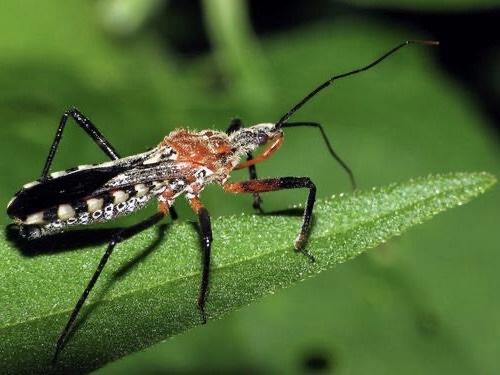Curate, connect, and discover
Hemiptera - Blog Posts
Lol
Guess I got a little too into entomology
#hemiptera and Other Things That Ruined My Life: An Autobiography by spectruminterests

In honor of the winning bugs of the Hemipteran bug race! In first place we have the loud and proud cicada, in second we have the springy and spirited leafhopper, and in third we have the threateningly named assassin bug! Here are close-ups of the bugs with their medals!



Thank you to everyone who voted! ❤️❤️❤️
Bug race, but it’s true bugs only

Cicada (photo by Shannon Potter on Unsplash)

Leafhopper (photo by Mariusz Dabrowski on Unsplash)

Stink bug (photo by Erik Karits on Unsplash)

Wheel bug (photo by Steven Van Elk on Unsplash)

Assassin bug (photo by Gustavo Fernando Durán on Flickr)
Bug race, but it’s true bugs only

Cicada (photo by Shannon Potter on Unsplash)

Leafhopper (photo by Mariusz Dabrowski on Unsplash)

Stink bug (photo by Erik Karits on Unsplash)

Wheel bug (photo by Steven Van Elk on Unsplash)

Assassin bug (photo by Gustavo Fernando Durán on Flickr)



Lichen mimic flatid planthopper, Atracis cretacea, Flatidae
Photographed in India by girishgowda

Red-shouldered Bug (Jadera haematoloma), taken April 4, 2025, in Georgia, US
Just a little guy posing for a picture! He seemed to be following the camera as I tried to get different angles. This insect has two adult morphs: long-winged (macropterous) and short-winged (brachypterous). The short-winged morph has, as you could infer, shorter wings that leave part of the abdomen exposed. I've seen both forms in a solitary setting, though this species apparently tends to have higher rates of short-winged adults when they live in groups. Less need for wings when you don't have to go anywhere to find a mate!


Psyllid (Genus Craspedolepta), taken April 4, 2025, in Georgia, US
Psyllid time!!! I was very excited to see one of these guys while inspecting some flowers for exciting stuff. These definitely count as exciting! I've only seen a few psyllids ever, but they're so, so cool. Much like aphids, they are very picky about what they eat from, and many are single-host specialists, so it's important to know what the psyllid you find is eating from (if it's feeding) or sitting on to have the best chance at a species ID! I tend to document all of the flowers I see insects visiting to annotate them on iNat, but I don't have this one yet (somehow), so I'll have to get back outside and check lol. For now, genus is as far as I can go with this!


Versute Sharpshooters (Graphocephala versuta), taken October 15, 2023, in Georgia, US
Some beautiful "red morph" versute sharpshooters looking all snug in some leaves! These photos were taken in their favorite little patch of plants—tall with long, tightly packed leaves for good protection and lots of surface area. I always find lots of G. versuta in there, though I often find G. coccinea (Red-banded Leafhopper) and many other assorted species of leafhoppers in the patch as well!

Spine-headed Bugs (Acanthocephala terminalis), taken August 18, 2024, in Georgia, US
Two nymphs at different stages of life sharing a leaf! I believe there were actually three individuals on this same plant, but the third didn't fit into the frame so it got its own picture. This area is frequented by the adult forms of this species, especially when flowers are blooming, so it makes sense that there would be plenty of babies too!


Rough Stink Bugs (Brochymena arborea), taken September 17, 2024, in Georgia, US
My favorite stink bug friends to see around!! There's honestly nothing about them that really stands out, but they have neat spiny protrusions on their shoulders that can be used to ID the species and cool camouflage for life on trees! Occasionally I'll see a fresher adult that's almost completely black and white instead of brown, which looks pretty neat!

Red-shouldered Bug (Jadera haematoloma), taken April 4, 2025, in Georgia, US
Just a little guy posing for a picture! He seemed to be following the camera as I tried to get different angles. This insect has two adult morphs: long-winged (macropterous) and short-winged (brachypterous). The short-winged morph has, as you could infer, shorter wings that leave part of the abdomen exposed. I've seen both forms in a solitary setting, though this species apparently tends to have higher rates of short-winged adults when they live in groups. Less need for wings when you don't have to go anywhere to find a mate!